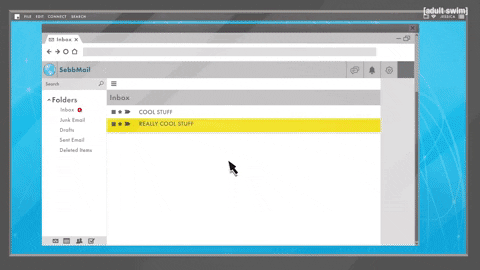While the world's biggest businesses make the headlines for cybersecurity breaches, it's often the smallest companies that are targeted most often - and it's these companies that often have the most to lose. 83% of small- and medium-sized businesses are not financially prepared to recover from a cyberattack, leaving a potentially devastating impact on businesses that may have taken decades to build.
Email may have become one of the business world's top communication routes, but as time has gone on its become a much larger liability as criminals have found ways to weasel into companies' most significant data. As the cybersecurity landscape continues to evolve, here are the biggest threats that every business leader should know about email security.
Phishing Attacks
According to Cisco's 2021 Cyber Security Threat Trends, 86 percent of organizations had at least one user trying to connect to a phishing site. While there are many sources for attacks, social engineering remains the largest route for malicious outsiders into an organization. Social engineering is defined as "the use of deception to manipulate individuals into divulging confidential or personal information that may be used for fraudulent purposes." This can come in the form of a phishing email, a suspicious text message, or even a phone call from an alleged customer service representative.
Phishing emails have plenty of telltale signs, often coming from suspicious email addresses. However, attackers have improved in recent years by mimicking legitimate emails nearly 1:1 - at a glance, many users would think that these are legit. Even with email security software, keeping a close eye on your inbox is an incredibly important step.
Malicious Email Attachments
Email is an incredibly powerful communication and collaboration tool, bringing companies around the world together in a matter of just a few clicks. While we're all sending documents and presentations on the web, malicious email attachments are often disguised as legitimate files. Often containing malware, including ransomware, these files are not only able to impact your computer, but can spread malware across your entire network.
Weak Passwords
Since being used by Fernando Corbató in the 1960s, passwords have grown to become a foundational part of the world of technology. While new login and verification methods are starting to become more mainstream, it's still incredibly important for password users to ensure that they're using a strong line of defense against attackers. If you choose to use a password for your account verification, it's best to instead use a passphrase mixed with uppercase and lowercase letters, numbers, and special characters. Even better is to use a password manager, completely randomizing your passwords while also taking away the need to remember them at all. Thinking about using a password manager? Here's a quick guide to get you started.
No Multifactor Authentication
Remember those "new login and verification methods" I was talking about? Meet multifactor authentication. Rather than relying on a password alone for each account, multifactor authentication introduces multiple devices into the mix to verify a user's identity. The process is incredibly simple and takes away nearly the entire risk of a remote hacking attempt - even if someone obtains your login information, the buck stops at MFA. From simple account-based MFA to independent verification apps like Microsoft Authenticator, this type of account protection is a fundamental piece of ensuring peace of mind for your email account security.
While it may be a small inconvenience to change passwords or set up additional security measures, it's important to remember how much is at risk - even through email alone. According to IMB, the average time to detect and contain a data breach is 280 days. From data harvesting to crypto mining, hackers have a large window of opportunity with even the smallest breaches. Using every possible security measure possible is key in keeping your data and your team protected.
SeedSpark partners with small- and medium-sized businesses to deliver technology solutions that meet today's needs while helping them prepare for tomorrow. Our team offers AI-powered email security software, scanning your inbox and protecting against today's attacks while also providing hands-on training for your entire team. Contact us today to learn more about SeedSpark Cybersecurity for small businesses.




